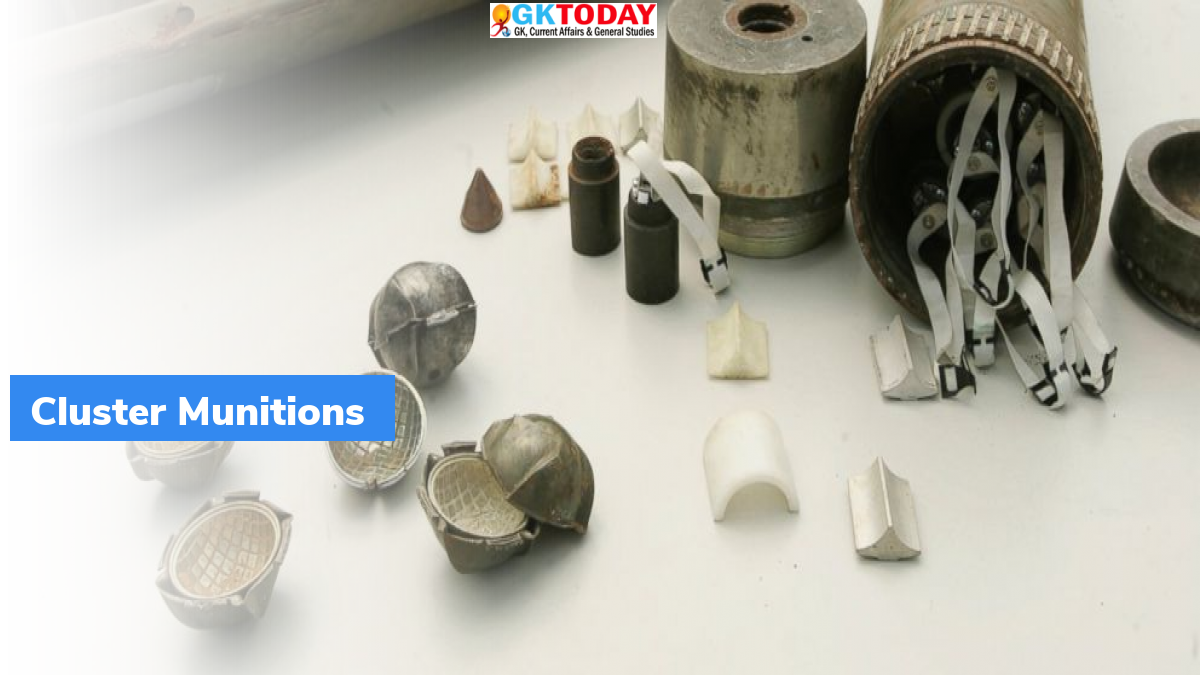What are Cluster Munitions and Vacuum Bombs?
On February 28, 2022, Human rights groups Amnesty International and Ukraine’s ambassador to the United States Oksana Markarova accused Russia of using vacuum bombs and cluster bombs in the ongoing war.
What are cluster munitions?
- As per 2008 Convention on Cluster Munitions, cluster munition means a “conventional munition which is designed to release or disperse explosive submunitions weighing less than 20 kilograms, and includes those explosive submunitions”.
- Cluster munitions are non-precision weapons, designed to injure or kill human beings indiscriminately across a large area. It can destroy vehicles and infrastructure like runways, railway or power transmission lines.
- Such weapons are dropped from an aircraft or launched in a projectile spinning in flight. It scatters many bomblets as it travels.
- Many of these bomblets do not explode, but lie on the ground, often partially or fully hidden. They are difficult to locate and remove but pose a threat to civilian population for long after fighting has ceased.
- Convention on Cluster Munitions specifically identifies “cluster munition remnants”, that include “failed cluster munitions, unexploded submunitions, abandoned cluster munitions, and unexploded bomblets”.
About Vacuum Bombs
Vacuum Bombs are also known as thermobaric weapon, aerosol bombs, or fuel air explosives. Such weapons use oxygen from air for a large, high-temperature blast. They cause significantly greater devastation as compared to conventional bomb of comparable size. They go off in two separate stages and can be fired as rockets from tank-mounted launchers or can be dropped from aircraft. When they hit their target, first explosion splits open the fuel container of bomb, releasing a fuel cloud and metal particles, which spreads across a large area. Second explosion ignites the aerosol cloud into a giant ball of fire and sends out intense blast waves, to destroy reinforced buildings or equipment and vaporise human beings.
Legality of such weapons
Countries who have ratified “Convention on Cluster Munitions” are prohibited from using cluster bombs. Till date, there are 110 state parties to the convention. 13 countries have signed it but have not ratify it. Russia and Ukraine are not signatories to the convention. On the other hand, vacuum bombs are not prohibited by any international agreement or law. However, their use against civilian populations across built-up areas, schools or hospitals attracts action under Hague Conventions of 1899 and 1907.
Month: Current Affairs - March, 2022
Category: International / World Current Affairs • Science & Technology Current Affairs






